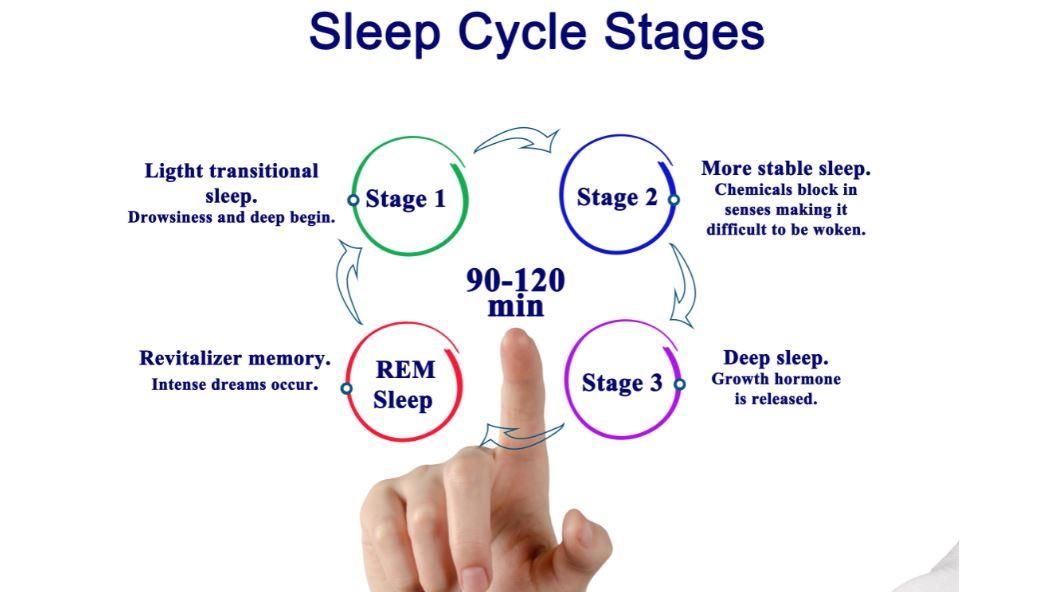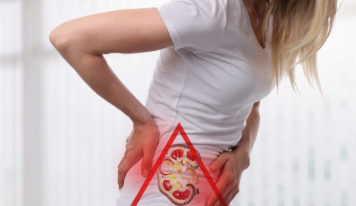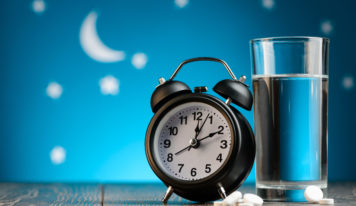Believe it or not, even the most sound sleepers among us, the kind who wouldn’t wake up if there was an 9.0 earthquake rattling their headboard, don’t actually sleep straight through the night. Although sometimes it may not seem like it, there are several different stages of sleep in the sleep cycle that we go through every time our head hits the pillow. If we’re lucky, we get to experience all four of the uninterrupted. If not, then we wake up with a really bad attitude, which tends to follow us for the rest of the day.
The stages of sleep are as follows: 1, 2, 3, and REM, or rapid eye movement. Each stage lasts for about 5 to 15 minutes, and all the stages together last for about 90 to 110 minutes total. This is considered one sleep cycle, and it’s one of many that we undergo each night.
The very first sleep cycle of the night has a short REM stage and longer periods of deep sleep. However, later on in the night the reverse is true, and the period of deep sleep decrease, while the length of REM sleep increases.
What does this mean for you? Well, deep sleep is considered restorative sleep. And if you wake up in the middle of your last round of REM sleep, you might feel groggy and unfocused for the rest of the day, no matter how much restorative sleep you got.
Getting both deep sleep and REM sleep is critical to not only the health of your body, but that of your brain. Knowing the different stages of sleep and sleep cycle can help you better understand why getting enough sleep is the number one thing you can do to support your health.
STAGE 1
This is the lightest stage of Non-REM (NREM) sleep, and is often defined by slow eye movements. This is a somewhat drowsy stage of sleep that can be easily interrupted by sounds and other stimuli in the environment. This is a time when the body starts to relax, and brain wave activity slows down. If you’ve ever felt a hypnotic jerk or sudden muscle spasm while trying to drift off to sleep, congratulations, you just accidentally woke yourself up from stage 1 sleep!
STAGE 2
This is the first real stage of NREM sleep, since you’re actually sleeping and not just drifting off into la-la land. It’s hard to be roused out of this stage of sleep, and the slow moving eye rolls of Stage 1 sleep are no longer present. Brain wave activity continues to slow, body temperature drops, and heart rate begins to decrease.
This stage of sleep accounts for a vast majority of our sleep time, and we clock in anywhere from 40-60% of our total sleep in this stage.
STAGE 3
This stage is known as deep NREM sleep where we experience delta brainwave patterns. This is where the real magic happens as far as healing the body is concerned. Stage 3 is the deep, restorative stage of sleep, and it’s very hard to wake a person up when they’re in this part of their sleep cycle.
It’s also the stage where sleepwalking, sleep talking, bed wetting, and night terrors occur. Our muscles are fully active, and if your partner has ever kicked you hard while sleeping, they were deeply entrenched in Stage 3 sleep.
Even though it’s supposed to be restorative sleep, Stage 3 sleep only accounts for 5-15% of total sleep time for most adults. It’s longer for children and adolescents, who are still growing.
STAGE 4
This is what’s known as REM sleep, where our eyes are moving rapidly underneath our eyelids. When our eyes move side to side in a very rapid fashion, it’s an indication that are brain waves are more active than they were in Stages 2 and 3.
REM can occur at any point during the sleep cycle, but it usually begins around 90 minutes after the onset of sleep. After REM, the sleep cycle will usually resume, and progress through Stages 1, 2, and 3 before returning back to REM sleep.
It’s a lot easier to wake up from REM sleep than Stages 2 and 3, and unfortunately it leaves us feeling very groggy if that happens.
REM sleep is also a time when our most vivid dreams tend to occur. As a result, it’s also when our body undergoes a type of muscle paralysis as a way of protecting ourselves from acting out whatever is happening during our dreams.
A person will typically go through four to five different 90-minute sleep cycles in a given night. That is, if they can even get to sleep to begin with. Unfortunately, insomnia is something that affects millions of people all over the world.
Thankfully there are some alternatives to pharmaceuticals that can help people get better, restorative rest. Melatonin has been a natural go-to sleep remedies in recent years.
However, unless you’ve been hiding under a rock, by now you’ve probably heard of the powerful healing benefits of cannabidiol, otherwise known as CBD. It’s another natural remedy being used by everyday folk to help them relax and get some good quality sleep.
Now that CBD has hit our mainstream consciousness, the combination of CBD and melatonin is a powerful one indeed. So, the next time you’re lying awake in bed at night after kicked you out of REM sleep, consider shopping for a CBD+melatonin product to help you get back your lotto-winning dreams.






